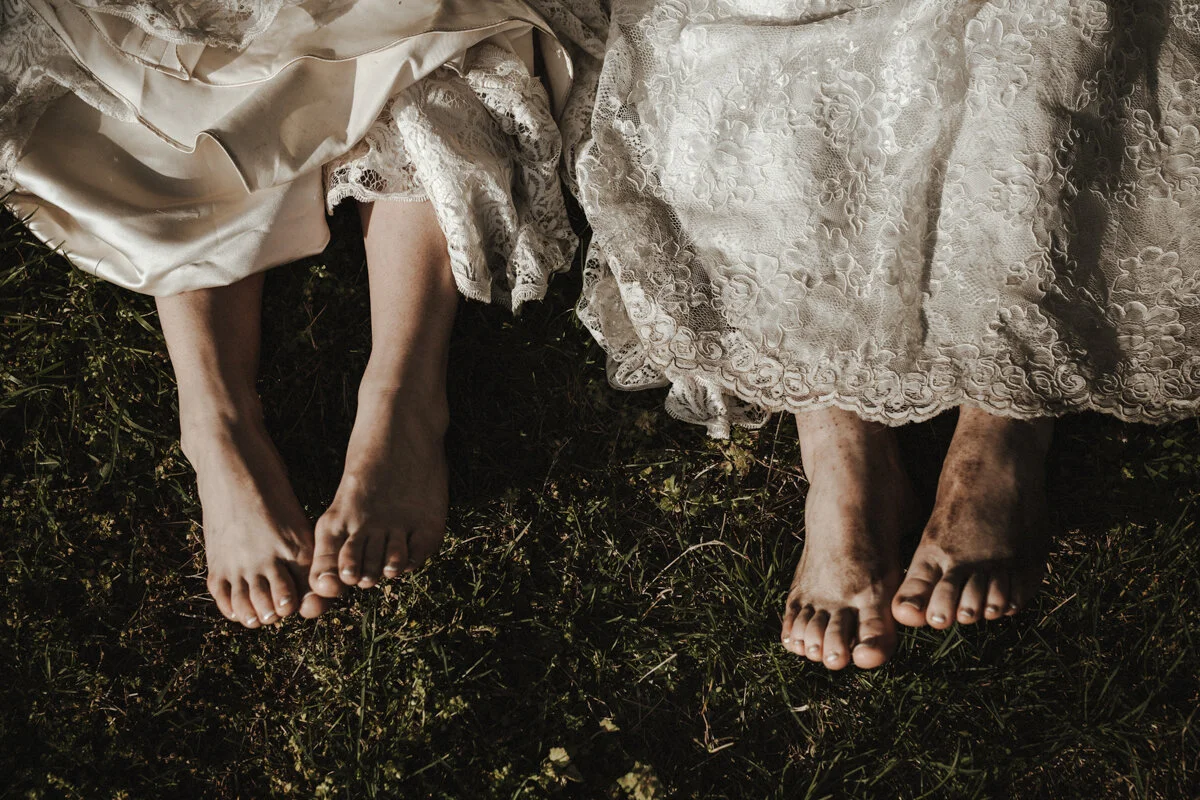Does Obergerfell v Hodges discriminate against single people?
/When the recent Supreme Court Case granting same sex couples the right to marry was released in June, the usual rebuttals from the usual suspects appeared in the news and media. However, one set of voices came as a surprise.
Single people.
In the form of organizations like Unmarried Equality, organized unmarried citizens made public statements like, “Unmarried Equality joins in the celebration of the Supreme Court’s long overdue decision that marriage will now be a CHOICE for all! We also call on the U.S. to remember that all of us are not married — single people and those in relationships who choose not to marry or cannot marry for a variety of reasons.” Amid all the celebration, unmarried people raised the point that choosing not to marry is also a valid personal choice, one which has material implications with regard to health care, taxation, parenting and more.
The question I’m pondering here is, what does the most recent victory for love and liberty have to say about the criticism mounted by activists for the unmarried?
In my read of the opinion, Obergefell v Hodges contains both the societal privileging of marriage and the logical foundation for debunking marriage's privilege in our culture. In doing so, it sheds light onto the path ahead and predicts a process for unmarried citizens, the outcome of which remains unresolved and impossible to predict.
Kennedy’s opinion starts with the initial premise that, “The Constitution promises liberty to all within its reach, a liberty that includes certain specific rights that allow persons, within a lawful realm, to define and express their identity,” setting as a first principle the right for individuals to choose their own destiny and express who they are.
Then the opinion shows how marriage is an example of the kind of terrain in which we forge our shared cultural beliefs about justice and freedom, stating, “Indeed, changed understandings of marriage are characteristic of a Nation where new dimensions of freedom become apparent to new generations, often through perspectives that begin in pleas or protests and then are considered in the political sphere and the judicial process.”
By starting with these two logical foundations, the Court establishes that individual liberty is paramount and that an American understanding of liberty evolves over generations. The opinion leaves an open window for the future stating, “The nature of injustice is that we may not always see it in our own times.”
These initial foundations predict the fundamental logic by which unmarried couples may someday persuade our culture to reconsider laws that currently privilege marriage as an essential building block of social order. But, and this is a big but, there is a process we must go through collectively. The Obergefell opinion lays out a detailed history mapping how our shared understanding of marriage has evolved over time. Relying on historical record as well as traditional case history, the opinion describes a social transformation that has unfolded across multiple channels, in the courts, in state laws, and in the culture. And while history has transformed our shared concept of what an acceptable marriage is, it has yet to seriously question the role marriage plays as a unit of social order. In some ways, the opinion puts marriage on a pedestal in order to reinforce the importance of access to the right to marry.
The opinion describes the marital bond as, “a two-person union unlike any other in its importance to the committed individuals,” a safeguard for children and families, and, most starkly, “a keystone of our social order.” It goes on to specify that, “just as a couple vows to support each other, so does society pledge to support the couple, offering symbolic recognition and material benefits to protect and nourish the union,” including, “an expanding list of governmental rights, benefits, and responsibilities. These aspects of marital status include: taxation; inheritance and property rights; rules of intestate succession; spousal privilege in the law of evidence; hospital access; medical decisionmaking authority; adoption rights; the rights and benefits of survivors; birth and death certificates; professional ethics rules; campaign finance restrictions; workers’ compensation benefits; health insurance; and child custody, support, and visitation rules.” The progressive heart in me is cringing. Does our culture privilege marriage? You bet it does.
Given the material and legal privileges afforded to married couples, it feels right to ask hard questions in response to the Obergefell opinion. Is a household bound together by marriage, the only kind of committed household? How do we define the ties that bind one life to another? What other ways, besides blood and marriage, do humans commit to care for one another? And when might those be exceedingly necessary?
I have personally chosen marriage as a vehicle for my self actualization and personal expression, and as a Certified Ceremony Celebrant I facilitate others doing the same. In my experience of it, this personal choice is only strengthened and made more powerful when others are free to make their own choices. The long list of benefits offered to married couples amounts to a cultural pressure toward a specific definition of marriage, family and household that erodes the ideal of choice.
The logical foundations for free choice around marriage are embedded in Obergefell v. Hodges, but there is a future still to be made. I do the work I do because I have faith that individual actions move our collective forward, that each union has a tiny, but sacred opportunity to pave the way for future unions. As couples who choose marriage we have a very small, but important chance to do our part to set an inclusive course for generations ahead. In each of our ceremonies and committed relationships we get to claim our values, and in the words of marriage scholar Nancy Cott, “color the evolving institution.” May we all do so with generous hearts and brave dreams of what is possible in this country and on the planet.
CRISTINA SPENCER
Cristina Spencer is a writer and ceremony celebrant from Palo Alto, California. She is the author of the forthcoming book, Writing Your Own Wedding: A Simple Guide for Modern Couples. You can read more of her writing on her blog www.cristinaspencer.com





















